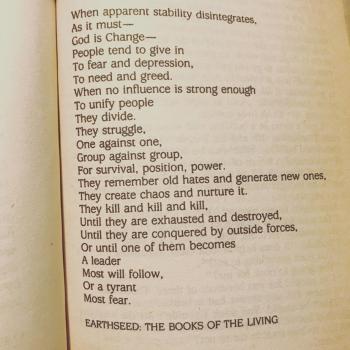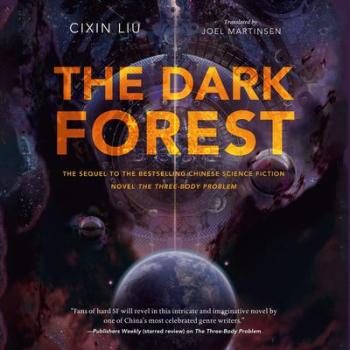I am grateful to Patheos for the opportunity to participate in the book club about Mary C. Neal’s book To Heaven and Back: A Doctor’s Extraordinary Account of Her Death, Heaven, Angels, and Life Again: A True Story
. This is not a scholarly or academic book, but a personal account by this medical doctor of the experience she had of drowning, and of finding strength from her near-death experience, and belief in divine providence, as she and her family passed through still other tragedies, including the death of her son.
I find this a difficult subject to write about, since in my younger days, although I never had a near-death experience, I inhabited the worldview that Dr. Neal and many other Christians share, one that expects angelic actors to be present on the stage of human history, and rejects the notion of “coincidence” in favor of the affirmation that God is in control, and that everything happens for a providential reason. I can appreciate the comfort that Neal and others find in this view of things, particularly when trying to live in light of what could otherwise seem like senseless tragedy.
But having reflected critically on my earlier views, I cannot inhabit that world, nor would I now find it comforting to do so, and To Heaven and Back served only to reinforce the problematic nature of this worldview.
There is no need to be skeptical about Neal’s description of her near-death experiences or out-of-body experiences. That someone who underwent the oxygen deprivation that Neal did would see and hear things is something that no one is likely to deny, although their explanations will differ. It is how those experiences are fitted into the framework of a broader worldview – one that she seems to have had or at least been influenced by even prior to her kayaking accident.
Neal depicts in her book a world in which human souls existed prior to coming into the world, and persist after departure. The reason for our current bodily existence becomes somewhat puzzling, but Neal suggests that it is because we have something we need to learn from the experience. But that in turn sits oddly with the joint emphasis on this being a universe full of divine/angelic “nudgings” to which it is apparently important to respond, and yet in which it seems as though everything that happens, whether seemingly good or ill, is for the best, and part of a divine plan, which is at times depicted as alterable but at other times seems not to be.
A worldview of this sort presents many puzzles and seemingly unanswerable questions. Neal believes that she was brought back from death to be there for her family to cope with the later death of their son. But surely that makes no sense whatsoever – it would have been just as straightforward to spare her her accident, and have the son survive his own accident after a near-death experience.
The book highlights the fact that, if we look for the good in the pattern of life that is woven by the intersection of human lives, we will find it. And I do not disagree in the slightest. But I do think that, in making a personal God the weaver who tugs and at times forces the threads into a foreordained pattern, it actually undermines the attributes of God that Neal herself wants to emphasize, including most importantly love. A God who micromanages an adult’s kayaking accident to ensure her survival, but not the careless running down of her son by a texting driver, or perhaps who micromanages both to at times reduce and at times intensify human agony, does not seem to provide anything other than personal comfort for one who, like Neal, wants to find comfort in the idea that such events are supernaturally meaningful.
But for me, an “explanation” that can fit any evidence is not an explanation, and a God whose mercy and providence are posited as ensuring Neal’s survival down to the last detail, and yet supposedly as also foreordaining her son’s death before age 18, only to grant him a reprieve, and then take it away again, and yet who in other instances micromanages even the breaking of an ankle in order to bring about a meeting, does not seem to me to offer comfort, or a God who is “loving” in anything like what we mean by that term, or indeed anything at all.
The last line of the book prior to a Q&A with the author says that God commands us to (among other things) “Live a life of gratitude, giving thanks in all circumstances.” I appreciate and share this emphasis on giving thanks in all circumstances. I appreciate and share Neal’s emphasis on looking back on our lives and seeing with hindsight how things have worked for good, and how even from the painful and seemingly unbearably tragic we have learned and grown.
But to insist that God is micromanaging the details, every flower blossom and bird, and every injury and threat to us and those we love, seems to add nothing positive and indeed to detract from this very point. If every tragedy is divinely ordained, there would be no point in trying to avoid them or to reduce the suffering of those around us.
Neal’s worldview is even more problematic than that at times. She says early on in the book, “It has taken many years to truly learn that when everything seems difficult and feels as though you are swimming upstream, it is usually because you are not following the direction of God’s will. When you are doing God’s will, everything seems to happen without much effort or many obstacles” (p.12). If Neal really believed this, she presumably would write about her experiences differently, since her life’s course – in which she says time and time again she detects divine or angelic providence – has not been without obstacles by any means. But the truth is that sometimes things really come together wonderfully, and we can delight in such moments without assuming that they will not lead on to severe difficulties later on, then coming to question why God made it so easy only to then make it so hard. No, sometimes things that are really worth doing will involve incredible struggles, and sometimes the easy path is that of the coward. If we insist on treating difficulty or smoothness as indications of divine favor or disfavor, we will in all likelihood not engage in the really hard things that Neal herself recognizes as important, such as the loving and the forgiving of those who do not seem worthy to receive our love and/or forgiveness.
One of the points that I found really meaningful early on in the book is an account of the attitude of an elevator operator who worked in a hospital building that Neal visited regularly during her medical training. That person said that her positive outlook, despite the negativity of those around her, came from the Lord: “She knew the only part of life she could control was her reaction to it, so she chose to react with love.”
If the book had made that point, without offering confident statements about how those things that we cannot control may or may not be providentially organized, I would have had a much more favorable impression of the book’s message. Instead, while I find myself glad that Neal and her family have found comfort in the worldview reflected in the book, but it is not one that I myself find comforting or would recommend to others for their comfort.
You can learn more about the author, the charities to which part of the proceeds from the book are given, and how others have responded to it, on the author’s web site.













